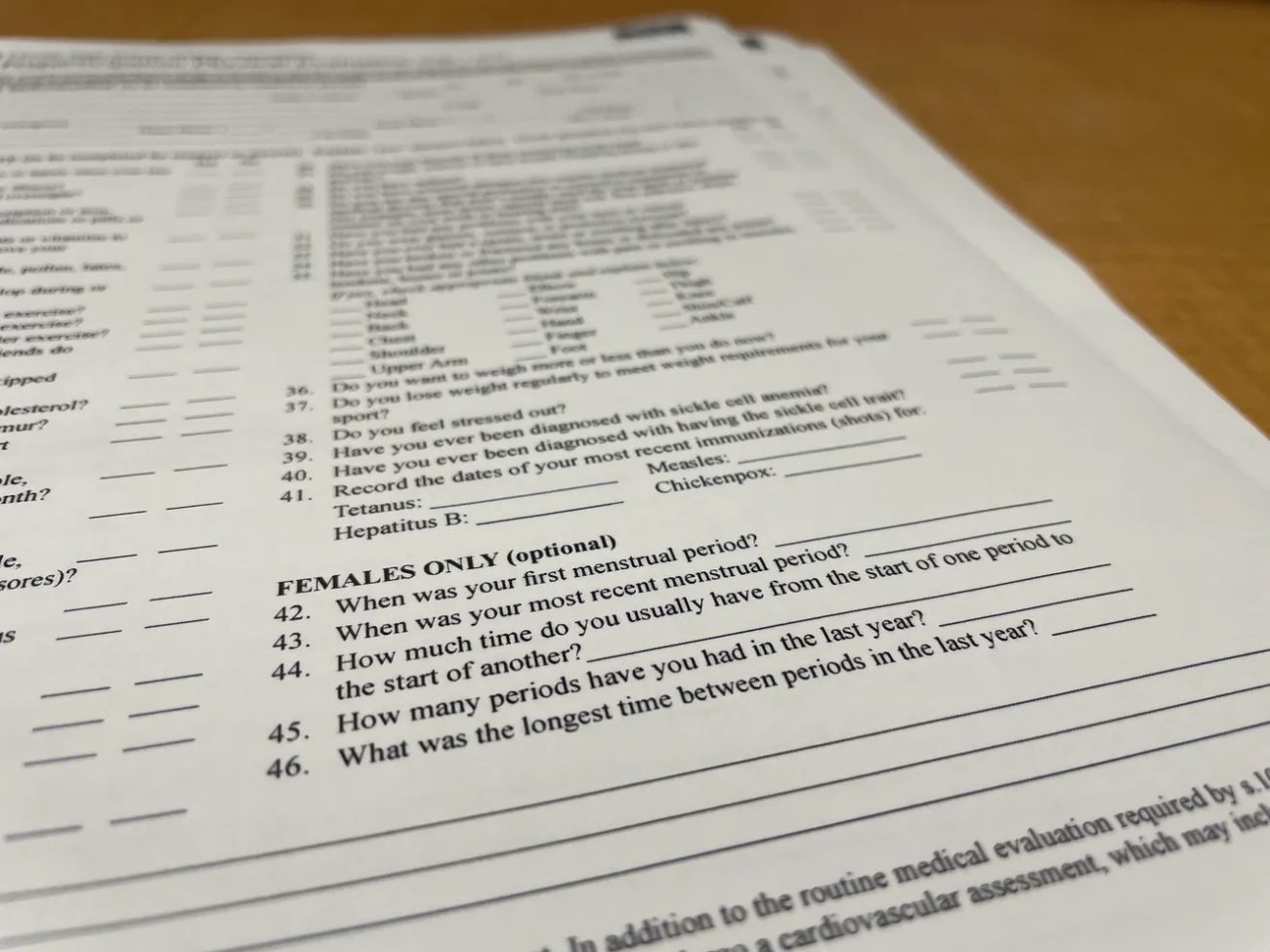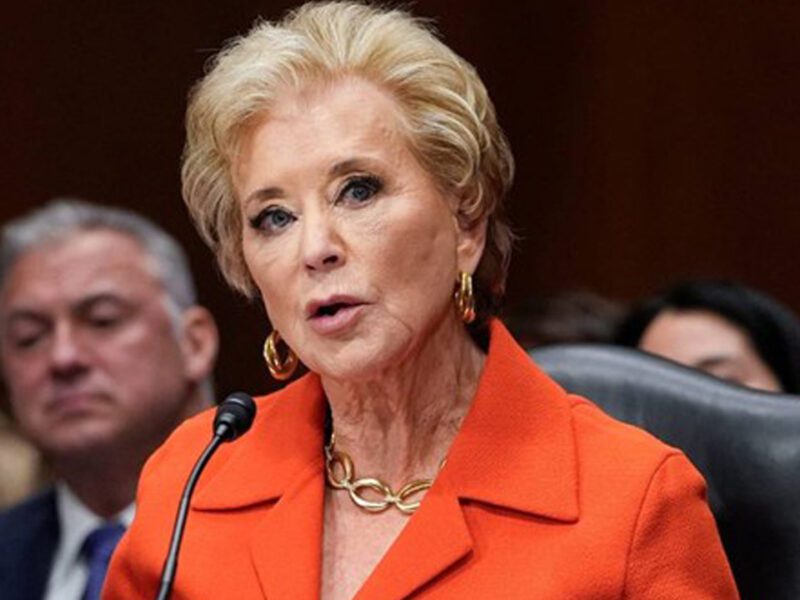
FHSAA calls emergency meeting to weigh scrapping athlete menstrual history questions
The Daytona Beach News-Journal | By Katherine Kokal | February 7, 2023
Florida’s High School Athletics Association has called an emergency meeting for its board of directors Thursday to consider scrapping questions about student athletes’ menstrual period history on its annual physical examination forms.
It comes after immense scrutiny from parents, physicians and Florida legislators who were outraged following reporting from The Palm Beach Post about an FHSAA committee’s recommendation to force athletes to report their menstrual history on an annual registration form (called the EL2 form) and turn it into their school each year.
According to the meeting agenda posted Tuesday, the board of directors will now consider a recommendation from FHSAA Executive Director Craig Damon to remove all questions about athletes’ menstrual history and direct athletes not to turn in any part of their medical history when they register to play.
The move was announced the same day that 30 Florida legislators called on the FHSAA to rescind its proposal to include questions about student athletes’ menstrual periods on the forms.
The letter, signed and sent by Democratic members of the Florida House, calls the questions “highly invasive.”
The writers asked the Florida High School Athletics Association whether parents can opt-out of reporting this information, whether it is HIPAA-compliant, and what the scientific justification is for asking athletes about their menstrual periods.
“These new reporting requirements would be highly invasive and no girl should be forced to disclose her bodily functions to someone who is not her mother, father, caretaker, or physician,” the letter reads.
“There is absolutely no reason for the FHSAA to collect such private information and no reason why the schools need it,” it says later.
fhsaa-letterConcerns about reproductive privacy after Roe v. Wade decision
While 35 other states require athletes to discuss their periods with their doctors and turn in the information, the issue has taken on new light in a post-Roe v. Wade world where students, parents and their physicians are reassessing reproductive privacy.
In October, The Palm Beach Post published an investigation that dug into why the female athletes are asked about their periods, where the newly digitized data is stored, and why it’s sitting differently with athletes and their families. Since then, the Florida High School Athletics Association has taken up the issue at least three times. But for reproductive privacy advocates, the association has taken a step backward.
In January, the FHSAA’s sports medicine committee agreed to recommend that the board of directors make the questions about menstrual history, currently optional on the athlete medical history form, mandatory.
Their recommendation goes further to say that athletes should be required to turn in their entire medical history to their schools, despite national recommendations that athletes’ medical histories stay with only their doctors.
The FHSAA’s board of directors will take up the issue at its next meeting on Feb. 26-27 in Gainesville.
A brief timeline of Florida menstrual questions for student athletes
- June: Palm Beach County contracts with online student athlete registration platform, Aktivate. U.S. Supreme Court overturns Roe v. Wade.
- August: Parents raise concerns to The Post and school board about having to report student medical history, including menstrual history, using the online platform.
- October: The Post publishes its investigation into questions about athlete menstruation. The Palm Beach County School Board calls a meeting to discuss allowing parents to submit paper versions of the forms and asks FHSAA to review the annual pre-participation physical evaluation form for student athletes in Florida.
- November: The FHSAA’s board of directors meets and decides against a move by one member to scrap the five questions about menstrual history altogether. The board sends the issue to its sports medicine committee for its recommendation.
- December: Florida state Sen. Lori Berman (D-Delray Beach) vows to bring legislation that would remove menstrual questions from the registration forms.
- January: FHSAA sports medicine committee meets to consider the issue. One member moves to recommend a four-page physical form where athletes are required to answer questions about their menstrual history, but don’t have to turn those answers into their school. The committee decides instead to recommend requiring both the questions and that athletes turn in the information. The decision is upheld at a special meeting after FHSAA Executive Director Craig Damon apologizes for giving the committee false information about how many other states require the menstrual questions be answered and turned in to schools.
- February: The FHSAA’s board of directors called a special meeting Feb. 9 to discuss removing any questions about menstrual history from the physical examination forms.
Why do doctors need to talk to student athletes about their periods?
Throughout the FHSAA’s review the of the physical form, doctors have maintained that it’s important to discuss menstrual irregularities with young athletes.
Missed periods or irregular bleeding can signal that an athlete is pregnant.
But it can also be a symptom of a group of disorders called the female athlete triad. Low energy, eating disorders, irregular periods and anemia can signal low bone density — which puts an athlete at greater risk for bone fractures.
The questions about menstrual history have appeared on the form since at least 2002. The questions are part of a medical history section that patients fill out before entering the exam room and discussing their answers with their physician. While physicians underscore the importance of discussing menstrual history with athletes, several say that information should stay with the physician.
“If someone hasn’t had a menses for six months and they’re 15 years old, that can be totally totally normal, or it could be a sign of something,” Palm Beach County pediatrician Dr. Thomas Schechtman said in September. “It’s not information that the school needs.”
Below is the board of directors agenda item for Thursday’s meeting:





